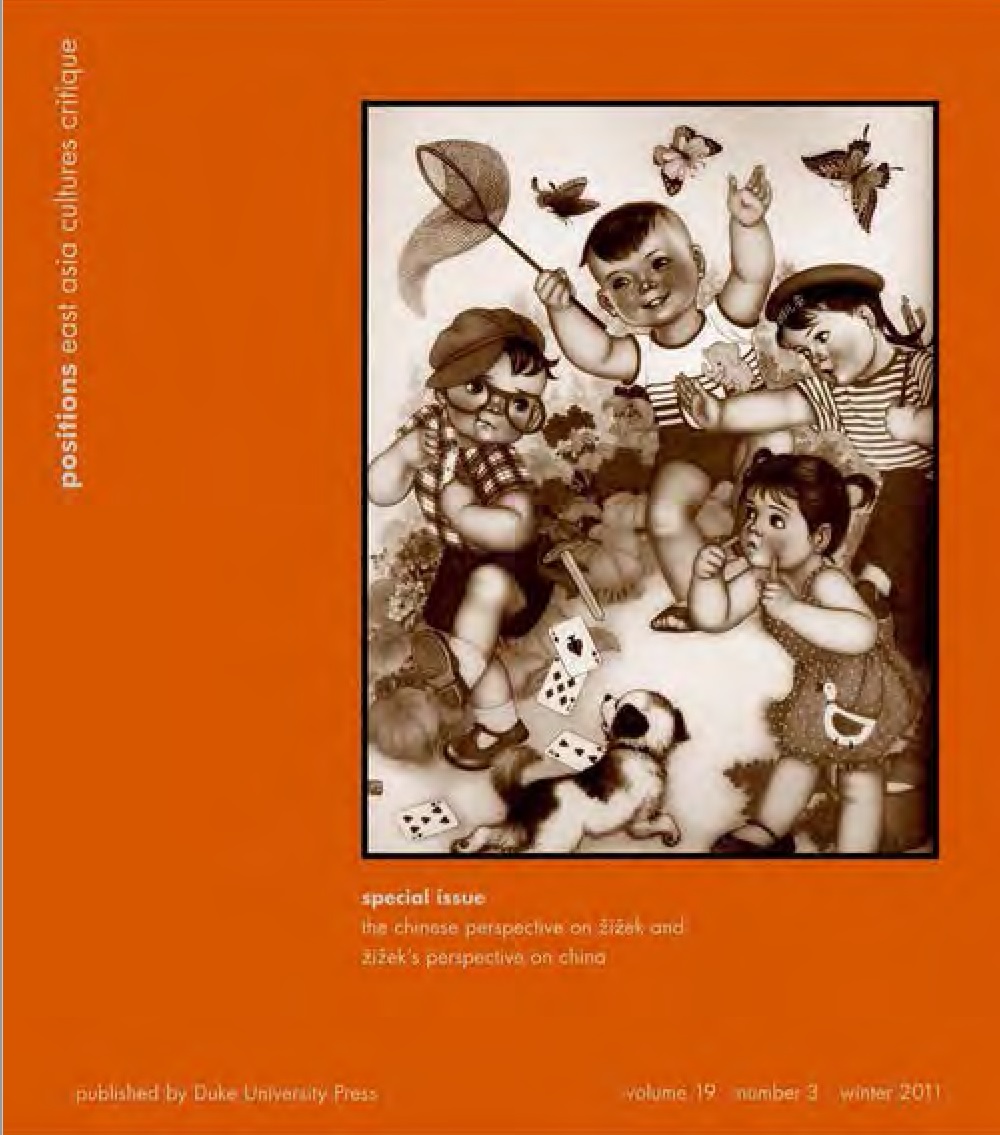Books/Slavoj Zizek/The Chinese Perspective On Zizek And Zizeks Perspective On China
< Books | Slavoj Zizek
The Chinese Perspective on Žižek and Žižek′s Perspective on China | positions: asia critique
Noted political and cultural theorist Slavoj Žižek and contemporary Chinese scholars share the challenge of reconciling barely compatible if not contradictory ideas. China’s radical assumption of both socialist and capitalist ideologies as well as its increasing economic and political prominence make it a crucial subject for theorizing about global modernity. This issue offers an interdisciplinary, international examination of how Žižek’s work has been received and interpreted by Chinese intellectuals and includes two essays on China by Žižek himself.In “Revolutionary Terror” and “Three Notes on China: Past and Present,” Žižek combines Confucianism, Lacanian psychoanalysis, Marxist political theory, Hegelian dialectics, and Kantian ethics with opera, literature, cinema, popular culture, and off-color jokes to critique both “really existing socialism and really existing capitalism” in historical and contemporary China. Responding to Žižek, one contributor considers China from the perspective of the Chinese intellectual who is simultaneously inspired by China’s rapid changes and anxious about the growing commodification of ideas and interference by state censorship. Others apply Žižek’s theories to Christianity in China; to the relationship among mainland China, Taiwan, and the Japanese colonial past; and to the continuing political value of Marxist ideology in what is, increasingly, a de facto capitalist state. In the interplay of Eastern and Western perspectives, this issue seeks to open new dialogues on the rich theoretical promise of China’s global dynamism and inner tensions.Tonglin Lu is Professor of Comparative Literature at the University of Montreal.Contributors: Kang Liu, Kwai-Cheung Lo, Tonglin Lu, Yang Huilin, Zhang Yiwu, Slavoj Žižek
